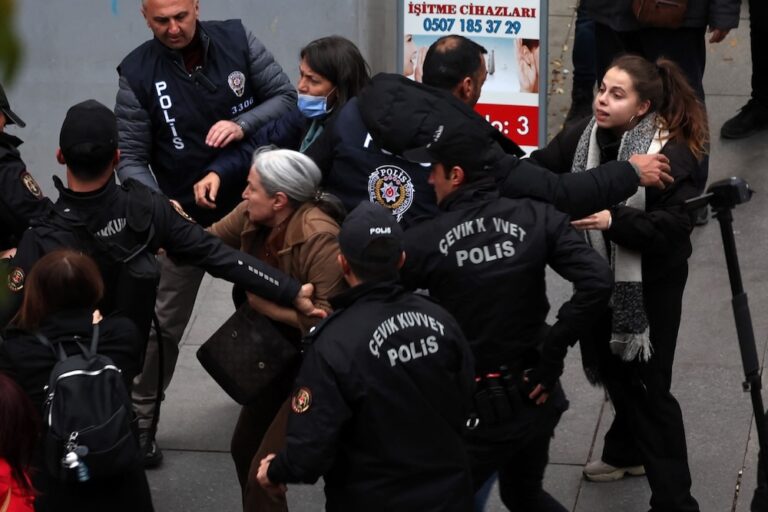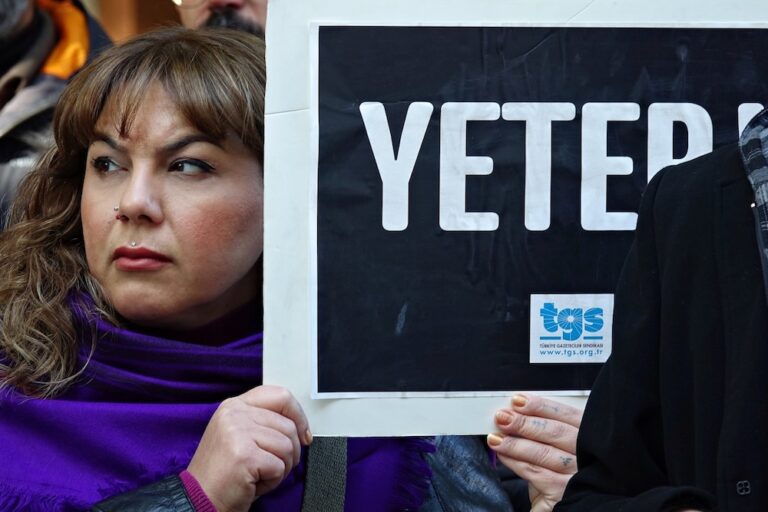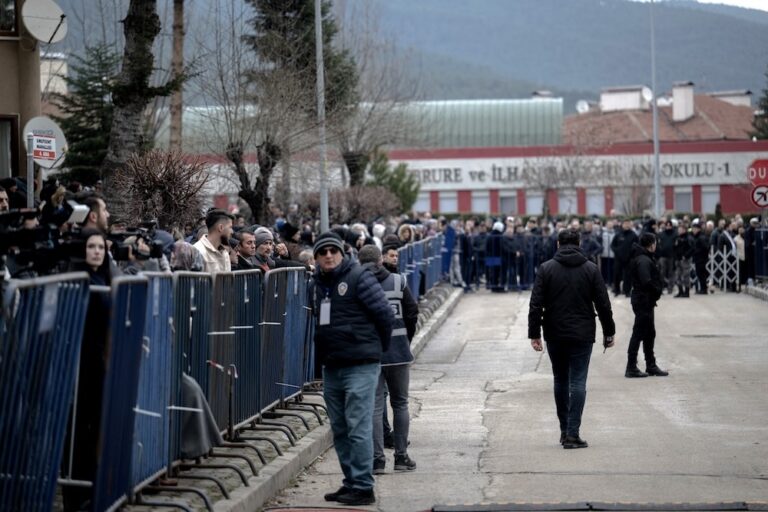(RSF/IFEX) – Reporters Without Borders condemns a military decision to block access to the Indymedia Istanbul ( http://istanbul.indymedia.org ) news website. The site has been inaccessible from within Turkey since 21 March 2008. A message was posted saying it was blocked on the orders of a military court attached to general staff headquarters. “This decision […]
(RSF/IFEX) – Reporters Without Borders condemns a military decision to block access to the Indymedia Istanbul ( http://istanbul.indymedia.org ) news website. The site has been inaccessible from within Turkey since 21 March 2008. A message was posted saying it was blocked on the orders of a military court attached to general staff headquarters.
“This decision is disproportionate,” Reporters Without Borders said. “Why block an entire site when the offending content could be removed? We urge the authorities to provide an explanation for this exaggerated measure and we ask them to take account of the freedom of expression of Internet users and their right to news and information.”
The site’s staff describe the blocking as an attempt to silence it by censorship. The Turkish authorities “have not yet learned that censorship is technically impossible on the Internet,” they said. They are continuing to post articles on the site using another address.
Video and photo-sharing websites are frequently blocked in Turkey. YouTube was blocked for the third time this year from 13 to 27 March as a result of an Ankara police court decision because it had posted videos deemed insulting to the memory of Mustafa Kemal Atatürk, who founded the Turkish republic in 1923.
At least two other courts have tried to block access to YouTube since the start of the year. An Ankara police court ordered it blocked on 18 January because of a video of a similar nature. A court in Sivas followed suit on 25 January.
The Slide photo-sharing website has also been inaccessible since 25 March as a result of the decision of a court in Crivil (southwest of Ankara) in response to “photos and articles considered insulting to Atatürk.” WordPress, the world’s most popular blog platform, has been inaccessible since August 2007.
“Participative websites are more and more exposed to censorship because they are harder to control than traditional news websites,” Reporters Without Borders said. “These decisions by the Turkish authorities pose a danger to the future of Web 2.0.”
The measures against websites are being taken under article 8 of Law 5651 on online publications and the fight against cyber-crime, which was adopted on 4 May 2007 and took effect in November 2007. Websites accused of insulting Atatürk may be rendered completely inaccessible during the entire time required to conduct a judicial investigation.


